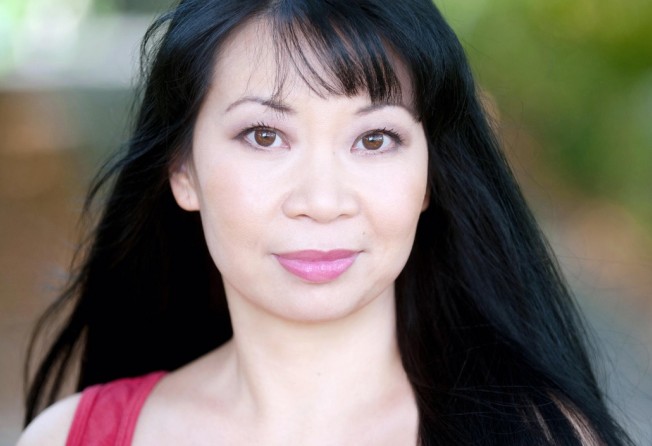Author Q&A: Mambo in Chinatown, by Jean Kwok

Jean Kwok emigrated with her family from Hong Kong to New York City when she was five years old. Her latest novel, Mambo in Chinatown , revolves around a clumsy young woman named Charlie Wong. A dishwasher in a restaurant in New York's Chinatown, Wong ultimately finds her own talents in a ballroom dance studio - just as Kwok did in real life: she was a professional ballroom dancer during her college years at Harvard and Columbia. Kwok spoke with Alison Singh Gee about her new book.
Your debut (2010) is also set in New York's Chinatown and describes the struggles immigrants to America typically go through. What connection does your first book have to ?
Both novels were born from my working-class background. We found ourselves living in an unheated, roach-infested apartment in the slums of Brooklyn. After school, even though I was only a child, I went with my father to work in a garment factory in Chinatown.
Would you say you have a real-life - and literary - obsession with Chinatown?
When I was little, my family took me to do all of our shopping there. Our workplace, temple, friends and family were there. I now live in the Netherlands with my Dutch husband and kids, but my heart remains in Chinatown.
Was your knowledge of Chinatown - and the world of ballroom dancing - enough help in writing the novel?
I spoke to many people about their lives in Chinatown. It made me realise the community is still quite closed and that I'm lucky to have family and friends who trust me enough to speak to me freely. I hope I'll be able to offer my readers an insight into a world that is often hidden from them.
Girl in Translation took 10 years to write. Why do you think has taken a lot less time to finish?
I think I have learned a great deal as a writer. Part of the reason it took me so long to write Girl in Translation was because I didn't know how to write a novel at all. I had to learn how to pace such a long story, how to weave themes throughout.
What's it like for your two children to grow up with a writer for a mother?
I worry sometimes if I'm a good mother because I'm always so busy. I asked my older 10-year-old son recently: "Would you rather have a dumb, sweet mother instead of me - always busy, stressed and travelling everywhere?" He came over, kissed me on the head, and said: "No."
To what extent is writing a way for you to discover and perhaps explore your identity?
I love writing because it always surprises me. I am never sure what I will learn about myself and others when I start writing a book. In the end, writing allows me to see my own life in a deeper way.
The father of your novel's narrator, referred to just as "Pa", is an altogether fascinating character who's at the centre of the story, along with the narrator's sister, Lisa. What are the origins of Pa and Lisa, and how did you develop them?
I wanted Pa to be old-fashioned and stubborn in many ways, yet filled with genuine love for his daughters. I hoped the reader would be frustrated with him yet love him and see how he was truly doing his best.
When Lisa falls ill in your novel, Pa rejects Western medicine but fails to treat Lisa with Eastern medicine. How did you feel as you were writing about your narrator's struggle to reconcile the Eastern and Western worlds in which she found herself?
The struggle is inspired by my own life. When I was working as a ballroom dancer, my father was quite ill and my family insisted on treating him with Eastern medicine. I fought to get him to a Western specialist and failed. My father died undiagnosed. For me, this was at the emotional core of the book.
You emigrated when you were five years old and didn't know a word of English. Over the years, how has adapting to America affected your identity as a writer?
As a first-generation immigrant, I was young enough to assimilate into American culture. This allows me to switch between the perspectives of first-generation parents and the second-generation children who tend to rebel against them. I see that struggle from both sides. I deeply appreciate the sacrifices made by the older generation who had the courage to leave so much of their own identities and loved ones behind. But I also identify with their children's desire for the freedom to live their own lives in their own way.
What's your next book about?
I think my brother's death in a plane accident right before Girl in Translation was published will become a part of the emotional heart of my next novel, which I have just started. It will be about grief, rebirth and moving to Europe.